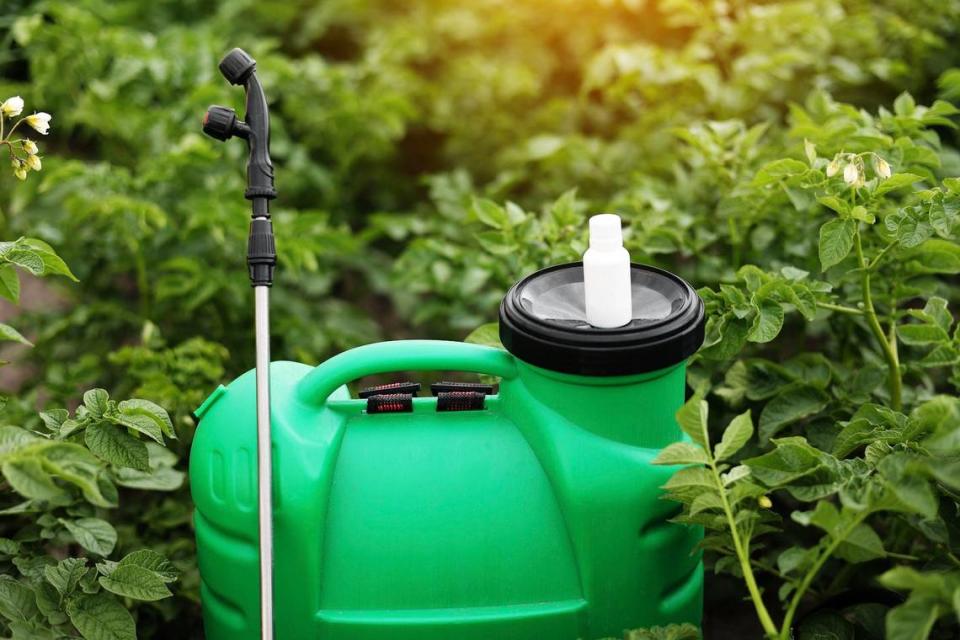How a proposed herbicide ban would actually result in greater environmental harm | Opinion
California farmers operate under one of the strictest regulatory environments in the world. This is not a complaint, it’s simply an acknowledgment of fact.
In many cases, our fertile soils and culture of innovation allow California’s agricultural economy to thrive even while complying with ever-changing regulations. New policies from Sacramento often come at a cost to our bottom line, but, ultimately, we respect the process and work hard to continue putting food on tables across the nation and world.
Opinion
Unfortunately, some legislators in the Capitol do not respect the process, and are trying to make life more difficult for growers under faulty assumptions.
The latest errant shot at farmers is Assembly Bill 1963, authored by Asm. Laura Friedman, D-Burbank, an unnecessary and unscientific proposal for a one-off ban on a common, effective herbicide called paraquat, which is used by many California farmers to control a broad spectrum of weeds while minimizing damage to nearby trees.
Many almond and pistachio farmers use paraquat to prepare orchards for harvest. Strictly adhering to California’s safety guidelines, we are required to use a state-certified applicator to apply paraquat to our tree rows to clean out harmful weeds and provide a clean surface before harvesting tree nuts.
Although more and more farmers are exploring ways to reduce their reliance on chemicals like paraquat, it is still imperative that it remain an option in our integrated pest management toolbox.
Without access to paraquat, farmers would be forced to use a more costly and carbon-intensive alternative — making several passes with tractors and equipment through each row to disc up and smooth out the surface in preparation.
Our farms and our communities benefit from paraquat’s ability to tackle weeds not controlled by other pesticides while avoiding adverse effects on soil microbes and microorganisms that preserve healthy soils.
The effectiveness of paraquat allows farmers like me to keep weeds managed and protect the health of crops, reduce the amount of nutrients applied and saving growers between 50,000 to 100,000 gallons of water per acre every year.
There are obstacles to using paraquat, and its use is already strictly regulated by the U.S. Environmental Protection Agency and California Department of Pesticide Regulation to protect the health and safety of farmers and farm employees. To apply the herbicide, you must be state-certified; complete regular, mandatory trainings; use a closed system with regulations on droplet size, wind speed limitations and buffers to keep paraquat out of the wrong hands and protect applicators.
When applied under California’s stringent standards, paraquat is a safe, highly effective herbicide that gives California growers a leg up on jurisdictions without the regulatory environment in place for the safe handling of the substance.
AB 1963’s proponents want to institute an outright ban on paraquat under the guise of public health claims — including the allegation that exposure to paraquat causes Parkinson’s Disease. But thorough reviews by regulatory agencies, including the U.S. EPA, have found those claims to be unsubstantiated. Even so, agencies, including the California Department of Pesticide Regulations, are continuing to evaluate public health claims — and farmers welcome the increased scrutiny.
Unfortunately, AB 1963 would enforce a near-immediate ban in direct conflict with the current science and before any further review by state and federal agencies is available. The proposal would jump the gun and leave farmers like me scrambling for alternatives for weed control that will have more harmful effects on the environment and drive up the cost of fresh fruits and vegetables for California families.
I encourage state legislators to trust the process, trust the experts and trust the science.
Karun Samran is the manager of Bapu Farming Company in Madera, which grows almonds, pistachios and other crops throughout the San Joaquin Valley. Samran also serves on the board of directors for the American Pistachio Growers.



